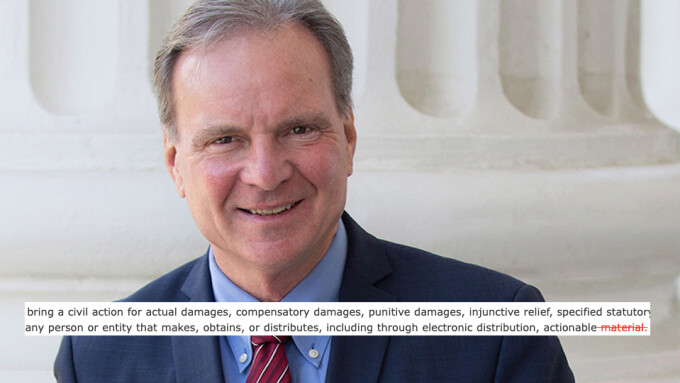SACRAMENTO, Calif. — A controversial California bill that would eliminate Section 230 protections in the name of fighting “online trafficking” and “revenge porn,” along the lines established at the federal level by FOSTA-SESTA, has moved forward in the state senate, spurring the Free Speech Coalition to renew its campaign against the proposed legislation.
The bill, SB435, was originally introduced by Senator Dave Cortese (D-San Jose) back in February 2021. Cortese claimed the bill had as its goal “to end human trafficking in the digital age.”
Reports at the time disclosed only that the bill had been drafted in collaboration with “the California Women’s Law Center, local advocates and sexual assault survivors.”
By May 2021, FSC was already warning about the overreach of the legislation, which would erode the standard Section 230 protections — the so-called “First Amendment of the internet” — providing a California-specific analogue to FOSTA-SESTA.
At the time, FSC sent a letter to Cortese, attached below as a PDF file. This letter of opposition, FSC Director of Public Affairs Mike Stabile told XBIZ today, “detailed both SB435’s unconstitutionality and the harms it would cause.”
But earlier this week, according to Stabile, Justin Case from Adult Industry Laborers & Artists Association “alerted us that the bill was moving forward, and last night Senator Scott Wiener's office reached out to share new amendments to the bill and gauge whether or not they assuaged our concerns. They didn’t.”
'A Deeply Flawed Bill'
The new amended bill was posted Jan. 3 and, Stabile said, “is still a deeply flawed bill.”
“While the goal of removing CSAM and nonconsensual content is admirable,” he continued, “the unintended consequences are huge, especially for sex workers. SB435 threatens platforms with fines of over $100,000 for not immediately removing flagged content, but offers little to protect the system from abuse by bad actors.”
Anti-porn groups and harassers, Stabile noted, “already abuse reporting systems to attack sex workers. SB435 would give them a powerful new tool, with almost no protections for legal content. And since most of the time platforms would rather remove legal content than arbitrate slowly and risk expensive litigation, the end result would be the further banning and removal for legal, legitimate content at a massive scale."
“Whether a fan site or a social media site, it's always easier to remove and ban,” Stabile stressed.
“It's too bad that Senator Cortese's office didn't work with us on the bill when we first reached out last year,” the FSC spokesperson said. “We could have helped design a bill that would be both effective and narrow. Our industry not only knows the First Amendment, we know how to block illegal content with minimal harm to sex workers and protected speech.”
To compare the original and latest version, click here.
Main Image: Sen. Dave Cortese (D-San Jose) (Source: official Senate portrait)







